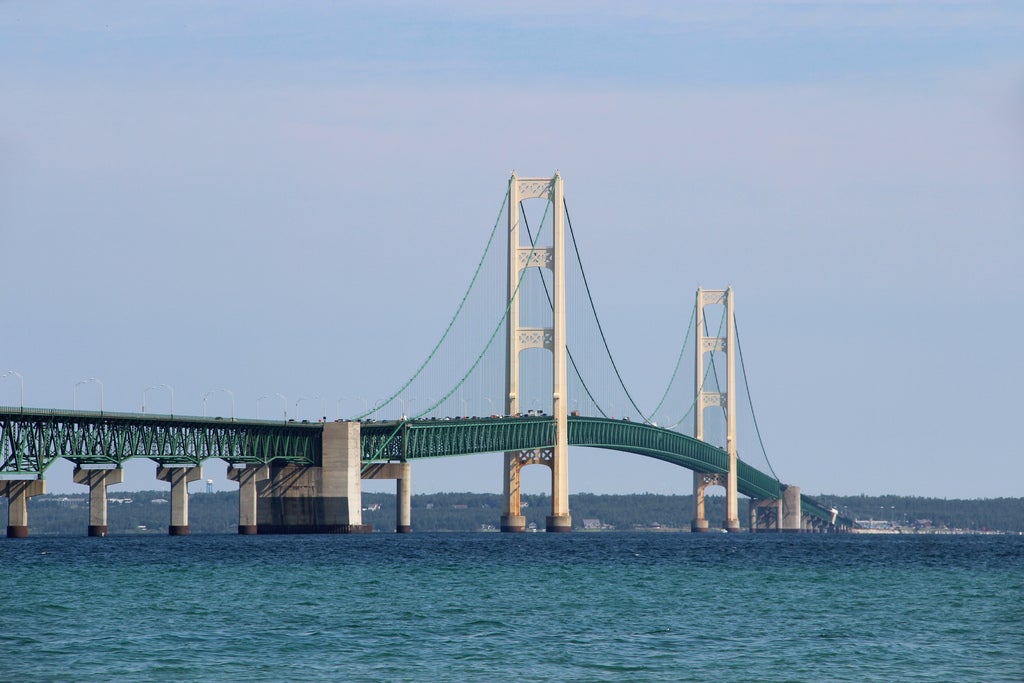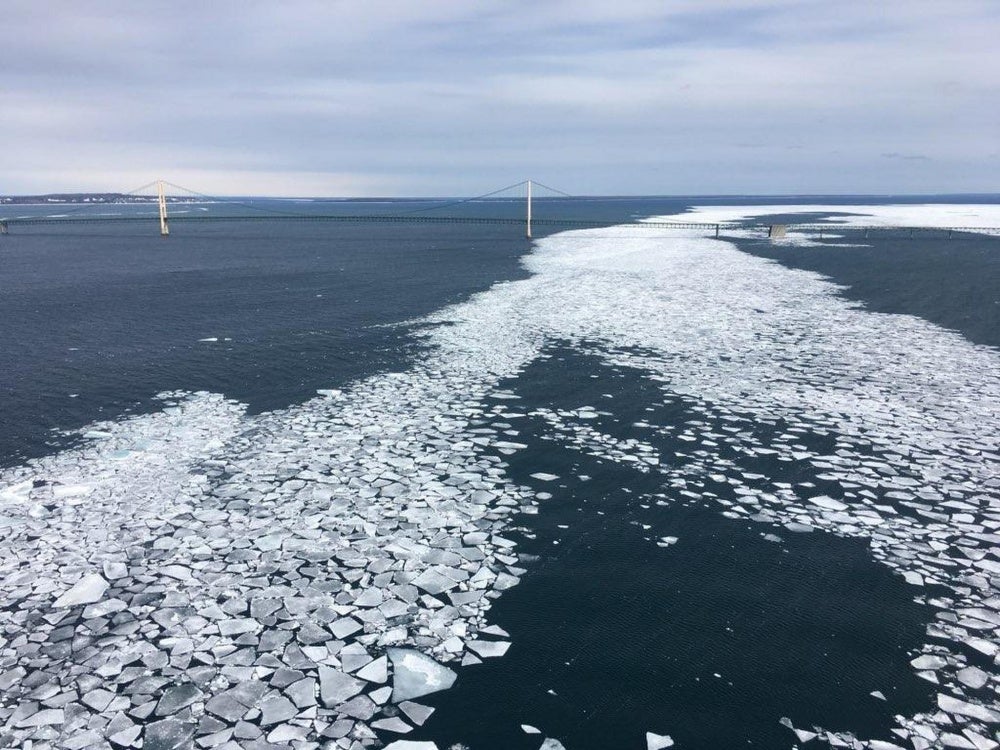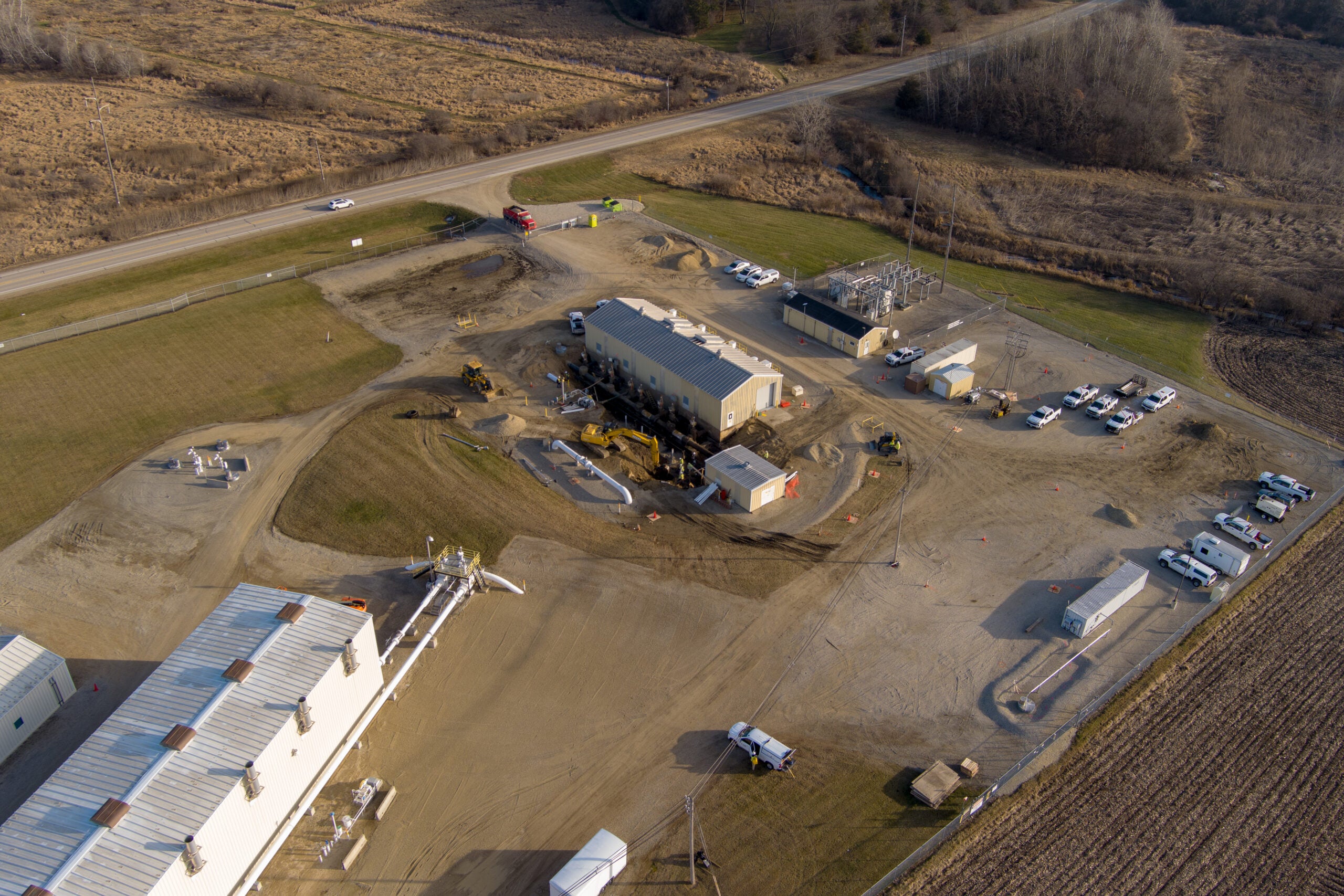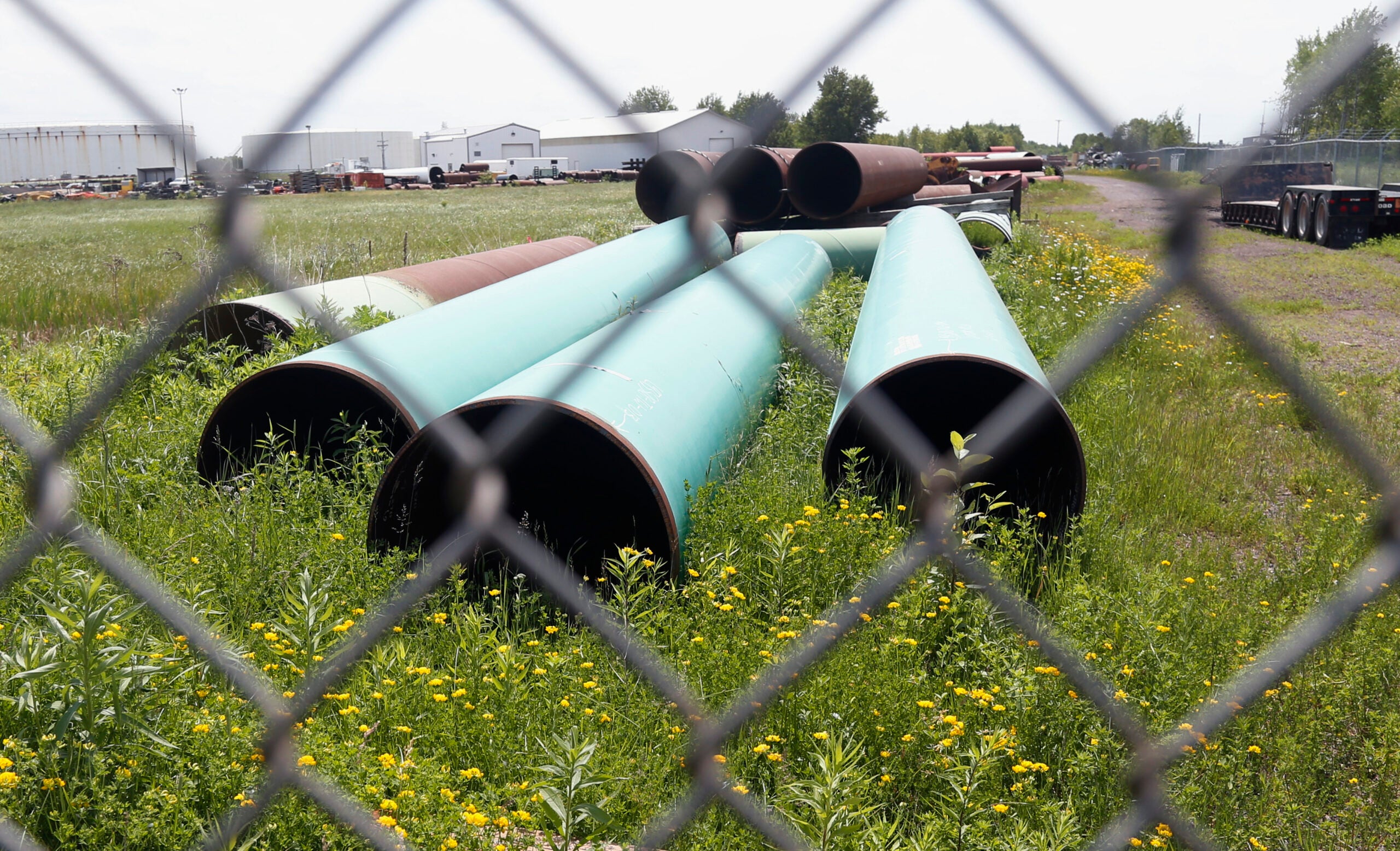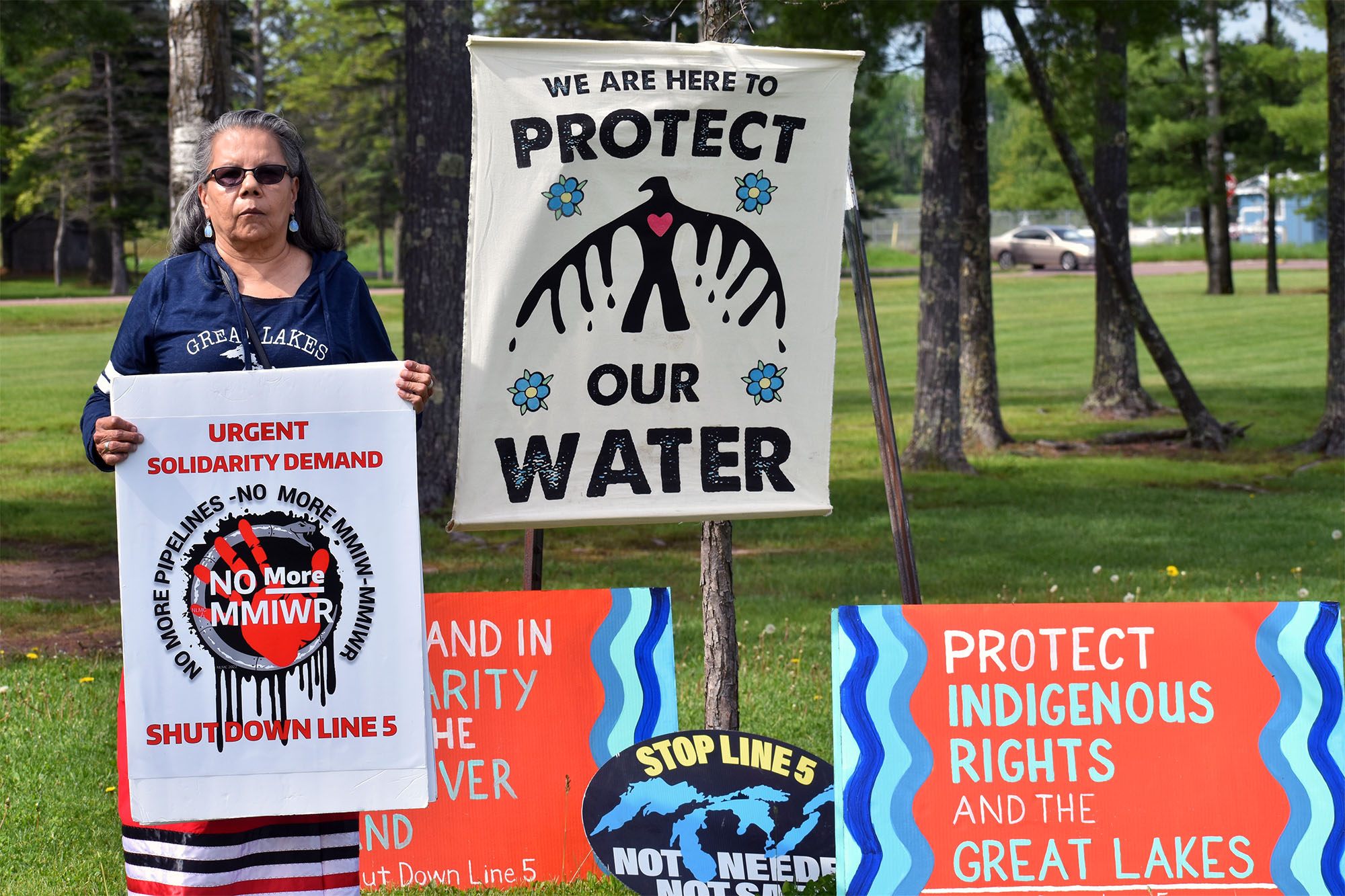A federal judge is asking the Pipeline and Hazardous Materials Safety Administration (PHMSA) to take another look at oil spill response plans the agency approved for Enbridge’s Line 5 that runs under the Straits of Mackinac.
The agency had approved plans submitted by the Canadian energy firm for Line 5, which carries up to 540,000 barrels per day of liquified natural gas and crude oil through its dual pipelines from Superior to Sarnia, Ontario, Canada.
The National Wildlife Federation filed a lawsuit alleging the plans didn’t comply with environmental laws, PHMSA failed to explain reasons for approval, and the agency failed to prepare environmental reviews or consult with appropriate agencies.
Stay informed on the latest news
Sign up for WPR’s email newsletter.
On Friday, U.S. District Judge Mark Goldsmith sent the response plan approvals back to PHMSA to provide specific explanations on reasons the agency signed off on the plans.
Beth Wallace, Great Lakes partnership manager for the National Wildlife Federation, said the judge’s decision means a better review of those plans.
“This review that is being required of PHSMA and the (state) Department of Transportation will take a more thorough look at both populations and environmental impacts and make sure that operators have everything they need in order to respond to a spill,” said Wallace. “Then, they had to also provide justification as to why they approved those spill response plans. It provides more of a checks and balances for the public to ensure the locations that impact them are being properly reviewed and managed.”
The federal judge ruled the agency should pursue consultation with environmental agencies and prepare either an environmental assessment or environmental impact statement to comply with the National Environmental Policy Act.
“They should be going through a lot more environmental assessment in order to ensure that they have spill response equipment, they have plans, they have contractors, they have everything they need in order to properly respond to a spill,” said Wallace.
Enbridge spokesman Ryan Duffy said the judge’s ruling found no fault with the company’s response plans for Line 5.
“(A)nd specifically found that those plans identify a worst-case discharge, sufficient equipment to respond to that discharge, and that further response plans for the Line 5 water crossings are not required by federal law,” Duffy said in a prepared statement.
Enbridge also said in its statement that those response plans are supplemental to Enbridge’s Integrated Contingency Plan that was approved in 2013. The company said those plans received “extensive” input from multiple agencies, including the U.S. Coast Guard, Environmental Protection Agency and Canada’s National Energy Board.
“With that said, in the past five years, we have invested billions of dollars in safety and integrity to make preventing leaks and spills our highest priority. Line 5 is monitored 24/7 by a dedicated team,” the statement reads. “If there is a change in pressure or flow, Enbridge can remotely and automatically shut off flow within three minutes and activate trained responders.”
Enbridge added it also holds regular exercises on spill response with federal agencies. Duffy added the company’s tunnel project is part of the company’s commitment to safety.
“That tunnel project for the line reduces the possible chance of any product getting out into the Straits to near zero because the line would be 100 feet below the lake bed and it would also be in a tunnel with foot-thick concrete walls,” said Duffy.
Michigan Attorney General Dana Nessel said last Friday that the law that authorized the tunnel for Line 5 was unconstitutional. Michigan Gov. Gretchen Whitmer called on state agencies to halt work on the project. Enbridge said it would seek clarification with the administration on a path forward.
A PHMSA spokesman said the ruling was still under review and declined to comment at this time.
The National Wildlife Federation along with the Environmental Law & Policy Center also sued the Coast Guard last summer over oil spill response plans, alleging the agency is unprepared to clean up any oil spill from Enbridge’s Line 5.
Wisconsin Public Radio, © Copyright 2025, Board of Regents of the University of Wisconsin System and Wisconsin Educational Communications Board.
